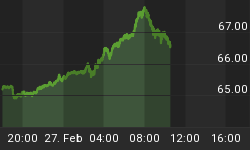The Census Bureau informs us that median household incomes are falling. In 2002 they fell for the third year running to $42,409. The official poverty rate, defined as an income below $18,392 for a family of four, rose for the second year in a row, from 11.7 percent to 12.1 percent of the population. 34.6 million Americans are said to live in poverty now. Moreover, the number of Americans without health insurance, which is believed to be an important symptom of poverty, rose by 5.7 percent to 43.6 million, which is the biggest single-year increase in a decade.
No matter what we may think of official statistics concocted by busy officials in a government bureau, they may make an important point: many Americans linger in poverty despite modest growth of the economy. Armies of civil servants, federal and state, are catering to the peoples welfare, especially to that of the poor and underprivileged --yet, their numbers are rising. This is all the more confounding as numerous technological innovations have made human labor more productive than ever before. Computer-aided manufacturing has raised labor productivity significantly which, other conditions being equal, should have improved the standards of living of all. Without the magnificent technological improvements in our time, American productivity and living conditions might have fallen visibly.
Economists trying to explain this puzzling development point to a fundamental economic principle: human well-being depends primarily on the productivity of human labor which in turn hinges on the amount of capital invested per head of population. American workers equipped with $100,000 worth of power tools are more productive than men carrying bows and arrows or even working with horses and buggies. Throughout American history economic conditions improved remarkably because many people saved, invested, and reinvested part of their incomes and created much capital.
Business capital consists of a myriad of facilities of production as well as liquid funds used in the production of other goods. It comprises industrial and office buildings, machinery, equipment, resources for the generation, transmission, and distribution of electricity, gas, and water. Labor productivity and levels of living tend to rise when capital formation increases faster than the growth of population; they tend to fall when capital is consumed or its rate of formation falls behind that of growth of population. A common cause of decline is the consumption of savings by government suffering large budget deficits; a visible symptom of decline is the aging, wear and tear, and disrepair of the facilities of production, idle machinery, and plant closings.
If the Census Bureau is correct in its findings that American household incomes are declining, economists must conclude that general labor productivity is decreasing. Surely, it has risen in high-tech industries which frequently make headlines, but it must have declined per head of American population. Industrial productivity reportedly grew by an astonishing eight percent during the third quarter, but output was running at only 73 percent of capacity. The productivity of the average American household more than six percent of which are suffering unemployment and underemployment probably stagnated or even declined.
The Census Bureau finding does not surprise economists who observe the deficit spending by all levels of government; deficits consume capital en masse. In fiscal 2003 the Federal government alone needed to raise $555 billion to cover its deficits and may need even more in coming years. Many governments of states and municipalities rely on the capital market to cover their deficits. Moreover, encouraged by record low interest rates, many individuals have gone on consumption sprees. Household debt is rising at an 11 percent annual rate and home mortgage debt at 14.2 percent. Total debt in the United States has soared since 1998. Despite low interest rates, household's debt-service payments are alarmingly high at 13 percent of household income. Should interest rates ever return to market levels, the payments would rise higher yet and exert painful pressure on hapless debtors.
Federal tax cuts and tax rebates spurred the joy of spending, but they also increased the Federal debt and drained the capital market. If it were not for the creation of massive quantities of fiat money by the bubble-blowing Federal Reserve System and the creation of even more fiduciary credit by commercial banks, interest rates would rise immediately and call a halt to the pleasures of deficit spending. And if it were not for foreign creditors, in particular, Japanese, Chinese, and Indonesian banks investing their trade surpluses in U.S. Treasury obligations, interest rates would soar and embarrass many debtors. When the present bubble finally bursts, the Census Bureau will keep us informed about falling household income.















